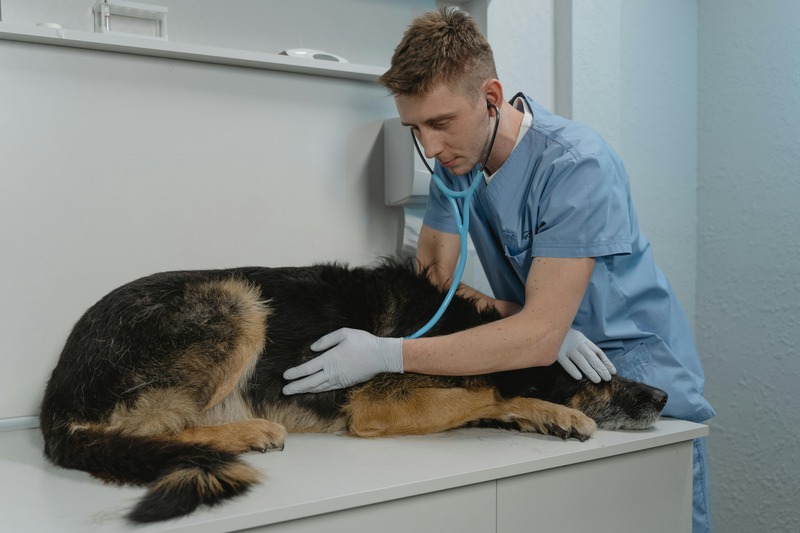
Feeling worried about your pet’s recovery from surgery? You’re not alone. Many pet owners are looking for effective ways to support their furry friends during post-operative care. One increasingly popular method is acupuncture. But how exactly does it help your pet recover? Let’s explore this together.
Benefits of Acupuncture in Pet Post-Operative Care
Acupuncture is a traditional Chinese therapy that involves inserting thin needles into specific points of the body. This practice isn’t just for humans; it’s proving to be beneficial for pets, too.
-
Pain Relief—One of the most critical aspects of post-operative care for pets is pain management. Acupuncture can alleviate pain by releasing endorphins, the body’s natural painkillers.
-
Reducing Inflammation – Post-surgery inflammation can be problematic. Acupuncture helps reduce swelling and inflammation around the surgical site, promoting faster healing.
-
Improving Mobility – After surgery, pets often have restricted movement. Acupuncture can enhance blood circulation and nerve function, aiding in better mobility.
-
Minimizing Stress and Anxiety—Pet surgery can be a stressful experience. Acupuncture can help relax your pet, reduce anxiety, and make it more comfortable during the recovery process.
What to Expect During a Pet Acupuncture Session
If you’re considering acupuncture for your pet post-surgery, you might be curious about what happens during a session. Here’s a quick rundown.
-
Your veterinarian will first conduct an overall health assessment of your pet.
-
They will then locate specific acupuncture points that target the issues your pet is experiencing.
-
Thin, sterile needles are gently inserted into these points. Most pets don’t find it painful; some might even get sleepy or relaxed as the session progresses.
-
A typical session lasts between 20 to 30 minutes, depending on the condition being treated.
-
Usually, multiple sessions are required to achieve significant benefits.
Combining Acupuncture with Other Post-Operative Care Methods
While acupuncture is effective, combining it with other care methods often yields the best results.
-
Medication – Continue any prescribed medications alongside acupuncture. Always consult your vet before discontinuing any drugs.
-
Physical Therapy – Complement acupuncture with physical therapy to improve your pet’s strength and mobility faster.
-
Nutrition – A well-balanced diet is essential for recovery. Make sure your pet gets the right nutrients to support tissue repair and overall health.
-
Regular Check-ups – Scheduled vet visits allow your veterinarian to monitor your pet’s progress and make any necessary adjustments to the post-operative care plan.
For more precise diagnostic services, consider visiting a specialized facility, like the veterinary diagnostic lab in Cummings, GA, to ensure your pet’s health is closely monitored.
How to Choose the Right Practitioner for Your Pet
Not all veterinarians are trained in acupuncture, so it’s crucial to find someone qualified.
-
Look for certified veterinary acupuncturists, often indicated by certification from organizations like the International Veterinary Acupuncture Society (IVAS).
-
Ask for recommendations from your primary vet or other pet owners.
-
Consider the practitioner’s experience and read reviews where available.
-
Visit the clinic to get a feel for the environment and ask questions directly.
If you’re new to this, feel free to check their acupuncture services during a consultation to ensure they align with your expectations and your pet’s needs.
FAQs About Acupuncture For Pets
Still have questions? Here are some frequently asked questions about pet acupuncture.
1. Is Acupuncture Safe for All Pets?
Generally, acupuncture is safe for most pets. However, it’s always best to consult with your veterinarian to ensure it’s suitable for your pet’s specific condition and overall health.
2. How Soon Can Acupuncture Be Implemented Post-Surgery?
This can vary depending on the type of surgery for pets. Usually, it can be started a few days post-surgery, subject to your vet’s approval.
3. Will My Pet Experience Any Side Effects?
Side effects are rare but can include minor bruising at needle sites or slight lethargy post-session. Always monitor your pet and consult your vet if you notice anything unusual.
4. How Often Will My Pet Need Acupuncture?
The frequency depends on the condition being treated. For post-operative care, sessions might be more frequent initially and then taper off as your pet improves.
Final Thoughts
Acupuncture offers several benefits for pets recovering from surgery. From pain relief and reduced inflammation to improved mobility and reduced stress, this ancient practice is becoming an excellent supplementary treatment. Pair it with traditional post-operative care methods like medication and physical therapy for the best results. Make sure to consult with a qualified veterinary acupuncturist for the best outcomes.























































